Key Takeaways
- The creator economy faces a content crisis where audience demand for new material far exceeds what traditional production methods can support.
- Synthetic media production software and AI videography tools increase output, lower production costs, and support consistent branding across platforms.
- Sozee focuses on monetized creator workflows, including SFW and NSFW funnels, custom fan requests, and agency approval processes.
- Compared with general-purpose tools like Synthesia and Virbo, Sozee emphasizes likeness realism, privacy, and creator-specific monetization features.
- Creators and agencies can use these tools to scale content libraries, maintain consistent posting schedules, and protect creator intellectual property.
- Choosing the right platform depends on realism, workflow fit, scalability, privacy practices, and long-term return on investment.
The Creator Economy’s Content Crisis: Why AI Videography Tools are Essential
The modern creator economy runs on a simple equation: More content leads to more traffic, more sales, and higher revenue. Creators still have physical limits, yet fans often expect never-ending content drops. This structural imbalance creates what many describe as “The Content Crisis”, a scenario where demand may outstrip supply by an estimated 100 to 1.
Traditional content production methods leave creators struggling with:
- Physical and mental burnout from constant content demands
- Limited production capacity due to travel, scheduling, and logistics
- Inconsistent quality due to varying lighting, locations, and energy levels
- High production costs that reduce profit margins
- Inability to fulfill custom fan requests quickly
AI video tools address these hurdles by automating manual editing, supporting brand consistency across platforms, and improving scalability. These tools help with time-consuming editing, resource limitations, and scaling content by automating tasks such as removing pauses, improving audio quality, and generating voiceovers.
The benefits of synthetic media production software extend beyond basic automation. These tools support increased content output, lower production costs, more creative options, and consistent brand messaging. Creators gain time back for strategy, audience engagement, and rest. Creators who want to address content bottlenecks can explore AI content solutions and test new workflows in practice.
Sozee.ai: The AI Content Studio Built for Monetization
Many AI video tools focus on general business or marketing needs. Sozee.ai focuses on synthetic media production software for creator monetization workflows. The platform targets creators who earn revenue through subscription, fan, or content marketplaces rather than corporate communication.
Key features that set Sozee apart include:
- Hyper-realistic likeness reconstruction: Generate a digital likeness from as few as three photos, with no separate training phase required
- Unlimited on-brand content generation: Produce photos and videos that match the look and feel of real shoots
- Built-in monetization workflows: SFW-to-NSFW funnel exports, prompt libraries for high-converting concepts, and tools for handling custom fan requests
- Agency approval flows: Streamlined review processes for teams that manage multiple creators
- Private, isolated likeness models: Creator likeness data remains private and is not used to train other models
- Platform-optimized outputs: Content formats tailored for OnlyFans, Fansly, TikTok, Instagram, and X
- Reusable style bundles: Save and reuse winning looks and scenarios across multiple content sets
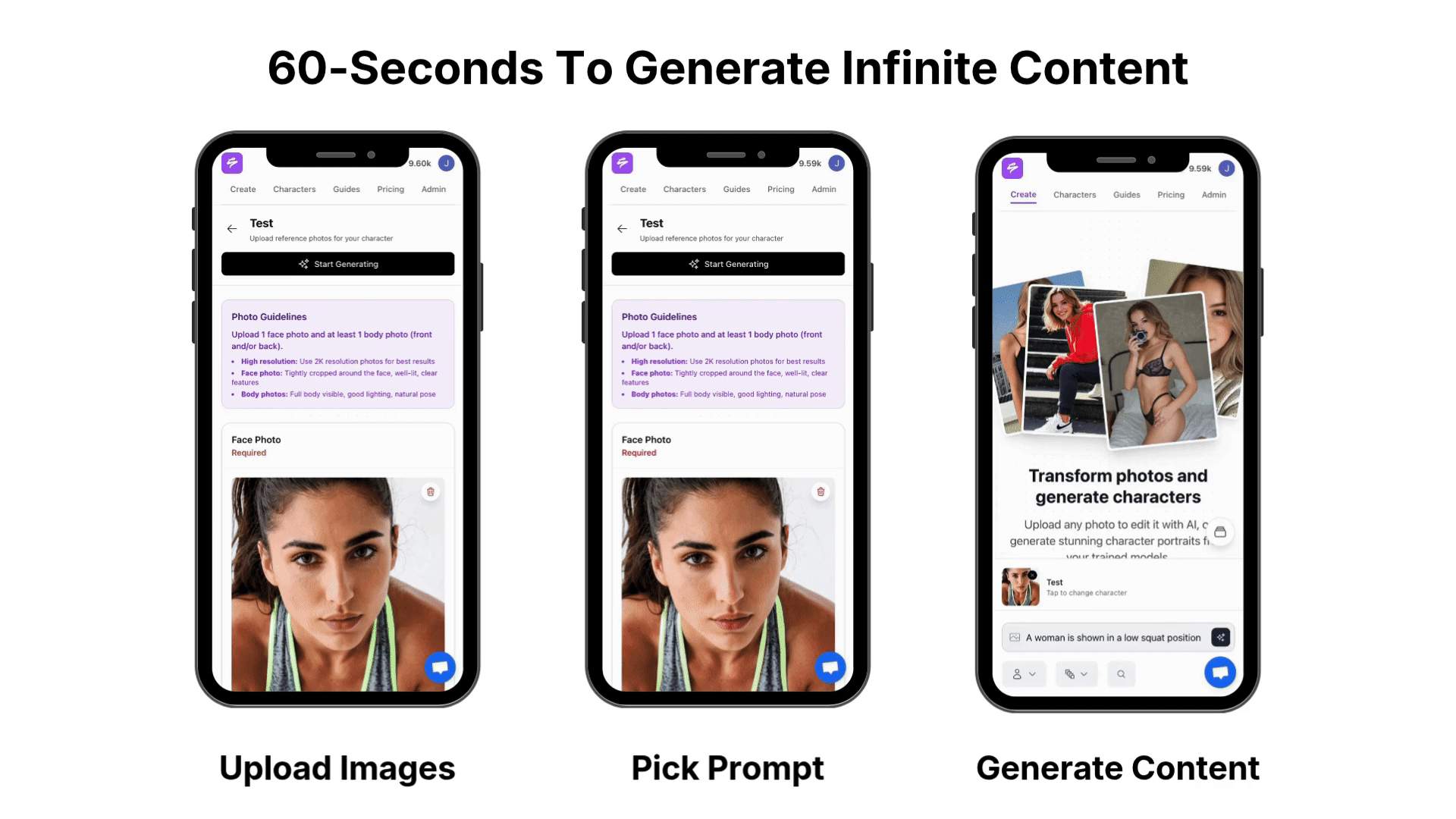
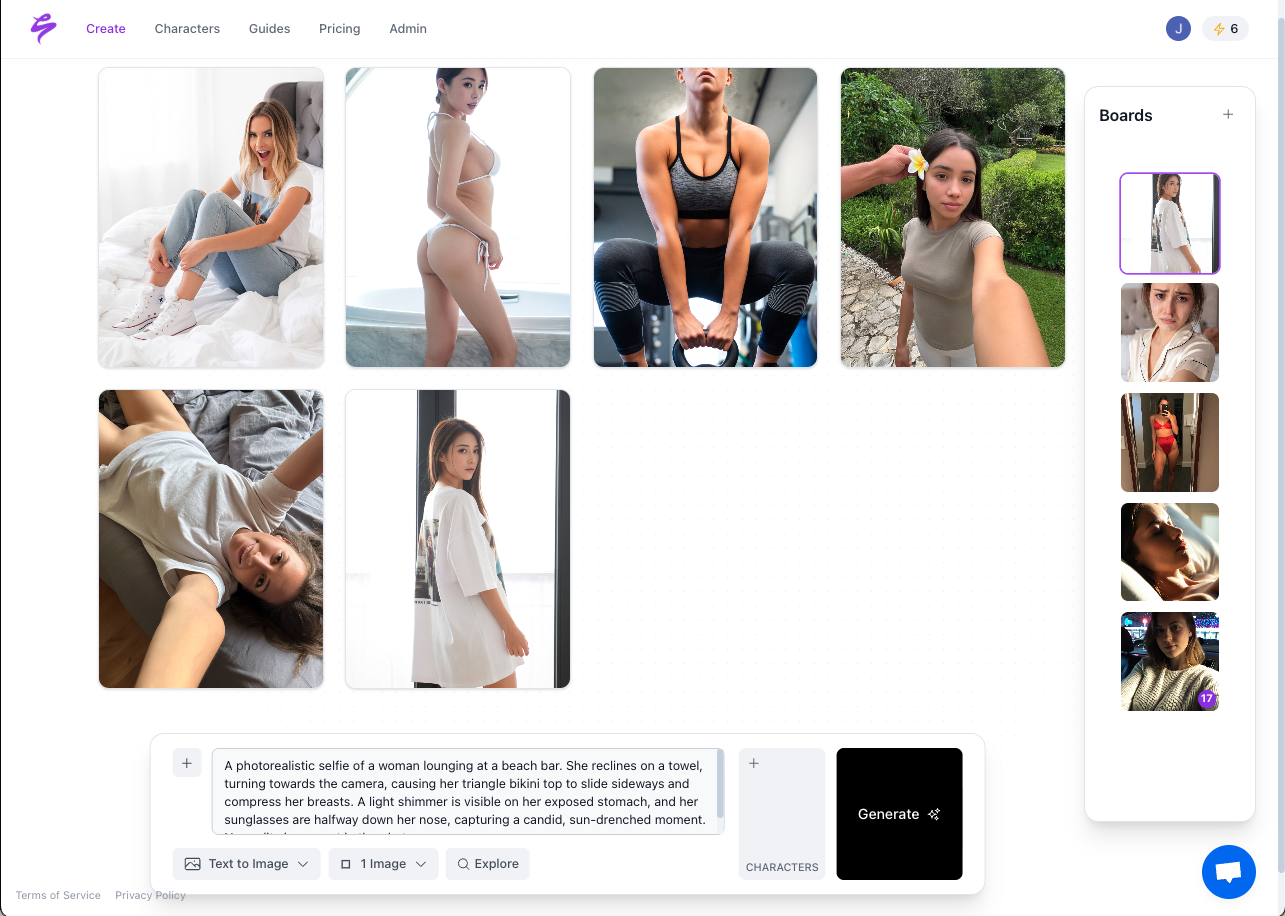
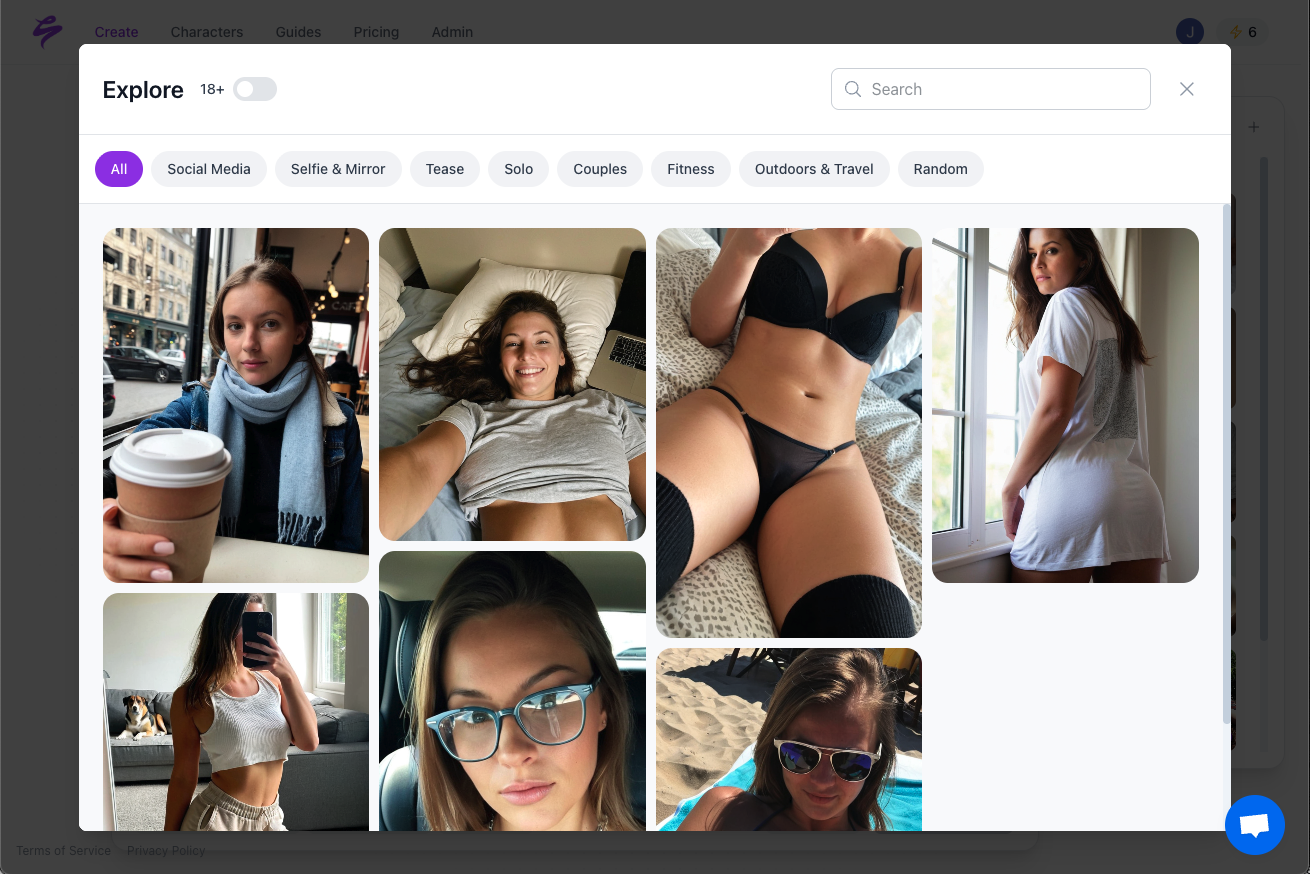
Sozee helps creators build scalable content engines so they can focus more on brand building and audience relationships instead of constant manual production. Agencies gain a structured way to support higher output across multiple creators. Creators and agencies can sign up to test Sozee.ai and evaluate how it fits existing monetization workflows.
Comparative Analysis: Synthetic Media Production Software for AI Videography
Realism and Likeness Fidelity: Moving Beyond the Uncanny Valley
The most important factor that separates practical AI videography tools from short-lived novelties is their ability to pass the “fan test”, where viewers cannot easily distinguish AI-generated content from real footage.
General-purpose tools like Synthesia and Virbo focus on business applications, including avatar-based presentations and corporate communication. These platforms provide suitable quality for professional settings, yet they may not meet the hyper-realistic standards required for some creator monetization scenarios, where fans expect highly authentic and often intimate content. Recent updates to platforms like Synthesia have improved realism and expressiveness, which makes them more competitive for certain creator use cases.
Sozee’s approach prioritizes likeness fidelity to keep facial features, skin texture, and movement patterns consistent with the creator’s real appearance. This focus helps content align more closely with fan expectations in monetized environments.
Workflow Integration and Monetization Focus
Integration into existing workflows benefits from features such as AI screen recording, multicam syncing, automated scene transitions, and direct sharing, which simplify collaboration and post-production. Most AI video tools still design their workflows around business presentations, marketing content, or general social media, rather than the specific needs of monetizing creators.
Creator monetization requires specialized workflows that general-purpose tools may not fully support, such as:
- SFW teaser content that drives traffic to paid platforms
- NSFW content sets that comply with platform guidelines
- Custom request fulfillment for high-value fans
- Agency approval processes that keep branding consistent
- Bulk content generation for scheduled posting across channels
Sozee focuses on these requirements through workflows designed around the creator economy revenue model. This approach reduces the amount of manual adaptation that creators and agencies need to layer on top of traditional AI video tools.
Scalability and Efficiency in Content Production
Scalability serves as a practical test for synthetic media production software. Automation and repurposing features reduce manual labor and speed up production, which supports cost-effective operations for solo creators and agencies that aim for scale.
Most AI video platforms still depend on templates or detailed setup steps that can restrict creative flexibility. Creators using these tools may produce several videos per week, yet many monetized strategies now favor daily or even higher posting frequency.
Sozee uses a minimal input requirement of three photos with instant likeness recreation to remove common bottlenecks. The platform is designed to let creators generate a month’s worth of content in a single afternoon, which supports posting schedules that would be challenging through traditional production methods.
Data Privacy and Security for Creator IP
Privacy concerns in the creator economy extend beyond typical business use cases. A creator’s likeness often represents their most valuable asset, and any compromise of this data can affect both safety and income. Many tools support secure collaborative editing and cloud-based asset management, giving agencies and creators control over sharing and storage, yet privacy policies and practices vary between platforms.
Some general-purpose AI video tools use uploaded content to improve their models. In those cases, creator likenesses might appear indirectly in other users’ content or be used for features that the creator did not intend. Certain platforms also retain broad rights to generated content or store likeness data in shared systems.
Sozee treats privacy as a core principle. The policy states that “Your likeness is yours alone. Models are private, isolated, and never used to train anything else.” Each creator’s likeness model remains separated from others, which supports stronger control over digital identity.
Customization and Control: Tailoring to Brand Needs
Available customization options often include changes to text, graphics, backgrounds, color schemes, and voice cloning so videos can match existing branding and communication styles. Several AI video generation platforms also allow detailed prompts for scene changes and fast iteration on new versions.
General-purpose platforms typically emphasize template-driven customization, where users select pre-built scenes and adjust elements within defined limits. This method works well for business communication, yet it may restrict the flexibility that creators need to maintain distinctive brands and deliver varied fan experiences.
Sozee provides detailed control over key elements of content generation, including lighting, pose, wardrobe, and environment. Prompt libraries and style bundles help creators standardize signature looks, which can become part of a recognizable brand identity.
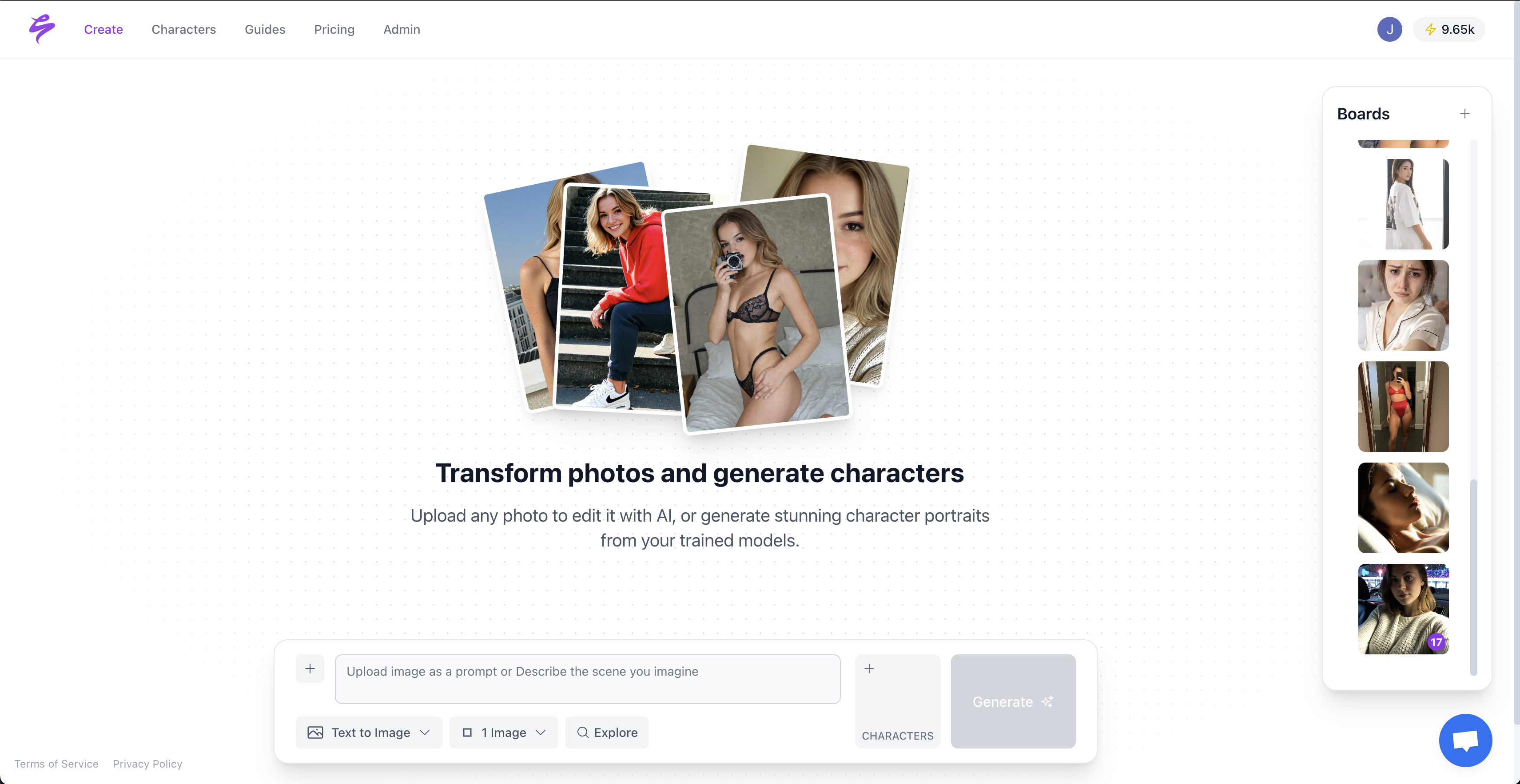
Comparison Table: Key Features of Leading AI Videography Tools
|
Feature |
Sozee.ai (Creator-Focused) |
Synthesia (Business-Focused) |
Virbo (General Purpose) |
|
Likeness Reconstruction |
Hyper-realistic from 3 photos; private models |
Avatar-based, template-driven; minimal setup for standard use |
Talking head avatars; custom models available |
|
Monetization Workflows |
Built-in SFW/NSFW, PPVs, agency flows |
Primarily business and marketing; some support for personal branding |
General business and marketing; limited monetization support |
|
Content Output Scale |
Designed for high-volume, on-demand content |
Scalable but template-dependent |
Scalable; avatar focus with editing functions |
|
Privacy and IP Protection |
Private, isolated models; creator-owned |
Varies by plan; requires terms review |
Varies by plan; user-controlled customization |
Real-World Impact: How AI Videography Changes Creator Businesses
The impact of synthetic media production software becomes clearer when looking at different creator segments and their specific needs.
For solo creators: Sozee helps independent creators generate more content in less time. The intended outcome is weeks of material produced in hours, which can support higher revenue through more frequent posting, stronger fan engagement, and faster custom request delivery.
For agencies: Creator management agencies must maintain consistent posting schedules for multiple talents. Sozee helps reduce the risk of content gaps caused by travel, illness, or burnout. This consistency supports more predictable revenue streams and can improve creator retention by easing workload pressure.
For anonymous or niche creators: Creators in specialized niches or those who protect their identity often find traditional production limiting. Sozee offers flexibility with digital wardrobes, fantasy scenarios, and varied environments at minimal incremental production cost. Anonymous creators can maintain privacy while still exploring new content themes.
For virtual influencer builders: The virtual influencer market depends on visual and tonal consistency. Sozee supports daily content output across multiple platforms while maintaining a stable likeness, which allows teams to operate more like media companies than individual creators.
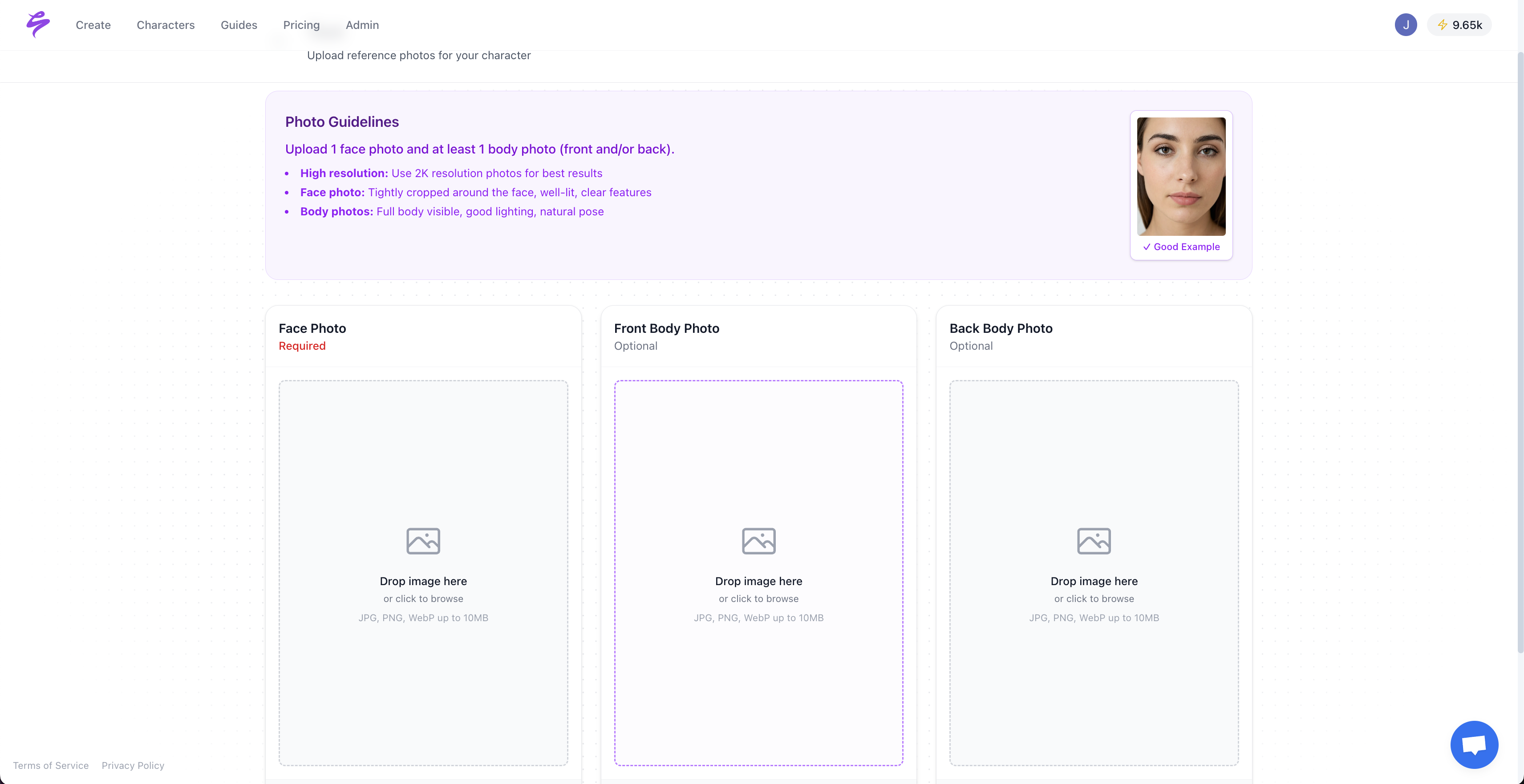
Total Value of Ownership: Beyond Features
Feature comparisons provide useful snapshots, yet the long-term value of synthetic media production software often appears in its effect on day-to-day operations. Return-on-investment considerations include automation and repurposing tools that lower manual effort and shorten production timelines for both solo creators and agencies.
Traditional content production usually follows a linear cost model, where more content requires more time, effort, and budget. Synthetic media production software reduces that link, so the cost per additional piece of content can decrease while overall output increases.
Key operational efficiency gains include:
- Elimination of location costs: No travel, accommodation, or venue rental expenses for many shoots
- Reduced equipment requirements: Less reliance on cameras, lighting kits, or studio gear
- Time multiplication: Larger content libraries created within short focused sessions
- Reduced creative team dependency: Creators can complete more work in-platform without large crews
- Faster response to trends: New content for trending topics produced quickly while interest remains high
The combined effect of these advantages can open new growth opportunities. Creators gain capacity to test more concepts, maintain consistent posting, and explore fresh creative directions without proportionally higher costs.
Frequently Asked Questions
Realism of AI-generated video content for creator monetization
Modern AI videography tools, including Sozee, target realism levels that are difficult to distinguish from traditional photography and videography in many viewing contexts. High realism is especially important for creator audiences, who often hold stronger expectations for authenticity than business presentation viewers.
Protection of likeness and intellectual property in AI videography tools
Privacy protection practices differ across platforms, so creators need to review data policies closely. Sozee uses private model isolation and restricts the use of uploaded likenesses, which helps prevent unauthorized training or cross-user content contamination.
Scalability of AI videography tools for monetizing creators and agencies
Synthetic media production software supports a move from linear to more scalable content creation. Sozee is designed to generate large volumes of content from a single setup, which helps creators and agencies maintain consistent posting schedules without depending entirely on live shoots.
Consistency across platforms and content types
Sozee includes reusable style bundles and prompt libraries that support visual and thematic coherence across formats. This structure helps creators maintain recognizable branding across Instagram, TikTok, subscription platforms, and other channels.
Learning curve for creators adopting AI videography tools
The learning curve varies by platform. Sozee prioritizes a straightforward experience so users can begin generating content within minutes of account creation. Most of the ongoing work centers on writing effective prompts and refining a repeatable approach to brand consistency, rather than mastering complex technical controls.
Conclusion: Choosing Synthetic Media Production Software to Address Content Bottlenecks
The creator economy content crisis calls for structured solutions that go beyond minor efficiency gains. Synthetic media production software, and AI videography tools built around monetization, help disconnect content output from constant physical availability.
Many AI video platforms serve different segments, including corporate communication, marketing, and general social content. Monetizing creators, agencies, and virtual influencer teams often benefit from tools that reflect their specific workflows, including privacy needs, fan requests, and multi-platform funnels.
Sozee.ai offers an option for creators who want to scale content operations while protecting their likeness. The platform concentrates on hyper-realistic likeness recreation, monetization-focused workflows, privacy safeguards, and detailed creative control. These elements address core aspects of the content constraints that limit creator growth and agency scalability.
Future growth in the creator economy will likely favor those who maintain consistent output without overextending themselves, agencies that reduce downtime between campaigns, and virtual influencers that stay visually consistent across many scenarios. Synthetic media production software provides one path toward that kind of reliable, scalable production. Creators and agencies can sign up for Sozee.ai to evaluate how it supports their content and monetization goals.
